If you’ve been swatting away mosquitoes every evening, it’s time to consider a natural solution. 15 Mosquito Repellent Plants for Your Garden can help you create a beautiful, pest-free outdoor space without relying on chemical sprays. These plants not only enhance your garden’s aesthetics but also release natural scents and oils that mosquitoes find unbearable, keeping them away from your home.
By growing 15 Mosquito Repellent Plants for Your Garden, you can enjoy outdoor gatherings, relax on your patio, or tend to your plants without the constant nuisance of buzzing insects. Whether you plant them in garden beds, pots, or around seating areas, these eco-friendly solutions will add both charm and protection to your space. Say goodbye to mosquito bites and hello to a lush, insect-free garden with these powerful plants!
1. Lemongrass
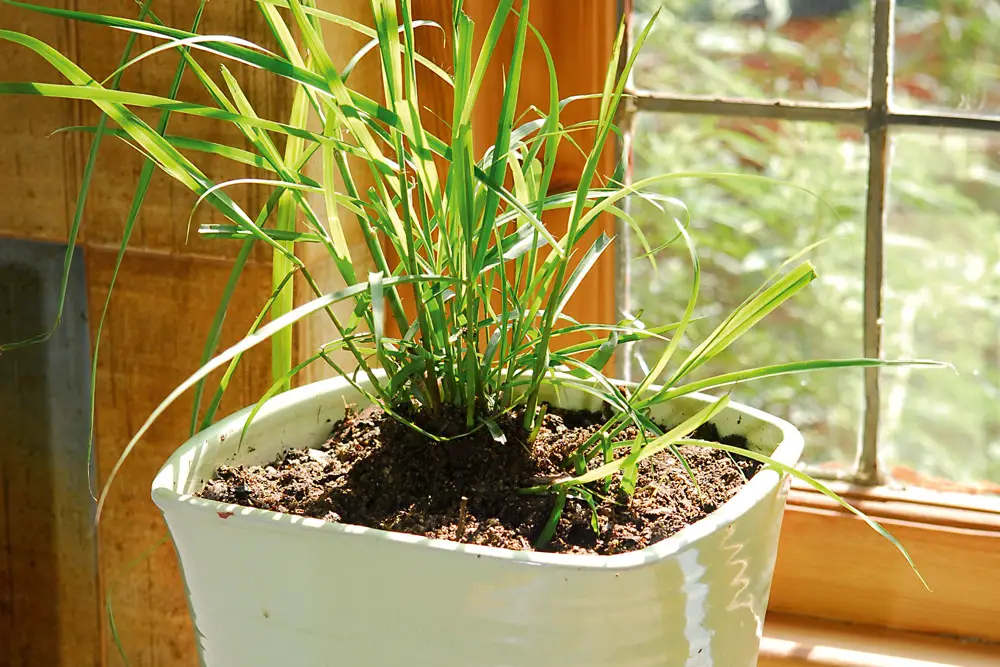
Lemongrass contains citronella, a natural oil widely known for its mosquito-repelling properties. With its tall, swaying stalks, it not only adds a refreshing citrus aroma to your garden but also acts as a natural barrier against mosquitoes. This hardy, low-maintenance plant thrives in warm climates and grows well in garden beds or large pots.
Including lemongrass in 15 Mosquito Repellent Plants for Your Garden ensures both beauty and functionality in your outdoor space. Whether planted along walkways, near patios, or around seating areas, lemongrass helps create a mosquito-free zone, allowing you to enjoy your garden without the constant nuisance of buzzing pests.
For best results, plant lemongrass in well-draining soil and a sunny location. Regular watering and occasional trimming will keep it healthy and thriving. You can also crush the leaves to release more of its natural oils for extra mosquito protection. With its multiple benefits, lemongrass is a must-have in 15 Mosquito Repellent Plants for Your Garden to naturally deter insects while enhancing your landscape.
2. Lavender
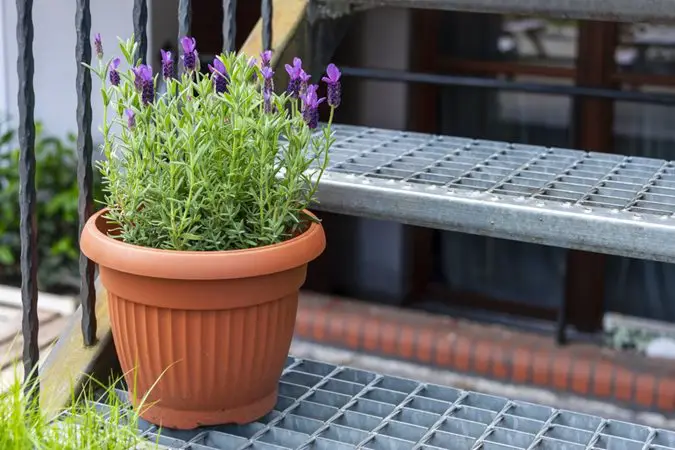
Lavender’s enchanting purple blooms are not just pretty—they release a sweet yet potent fragrance that mosquitoes hate. The natural oils in lavender act as an effective mosquito repellent while also attracting beneficial pollinators like bees and butterflies. This drought-resistant plant thrives in sunny locations with well-drained soil, making it an easy-to-grow addition to any garden.
Plant lavender along pathways, in flower beds, or in pots near windows and doors to create a natural mosquito barrier. You can also dry the flowers and use them indoors for extended protection. Crushing the leaves releases even more of its mosquito-repelling scent, making it a great addition to homemade natural repellents.
By including lavender in 15 Mosquito Repellent Plants for Your Garden, you’ll enjoy a fragrant, serene outdoor space while keeping pesky insects at bay. Plus, lavender’s calming aroma is known for its stress-relieving properties, making it a perfect plant for creating a peaceful garden retreat. Whether used fresh, dried, or in essential oil form, lavender is a versatile and beautiful solution for repelling mosquitoes naturally.
3. Marigolds
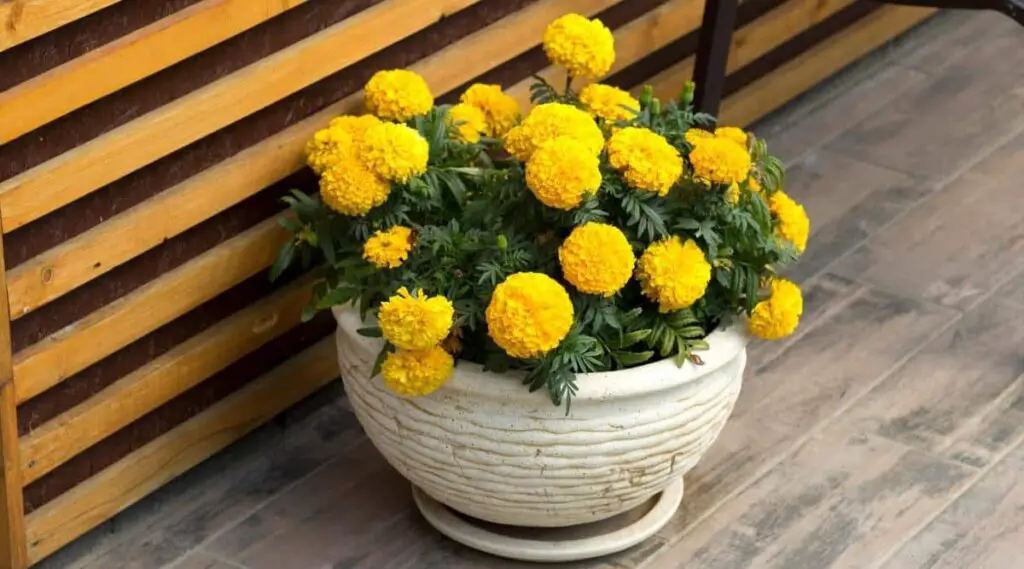
Marigolds are popular for their vibrant colors, but they also serve as a natural mosquito deterrent. These bright blooms contain pyrethrum, a powerful compound commonly used in insect repellents. The strong scent of marigolds keeps mosquitoes, aphids, and even some garden pests away, making them a practical and beautiful addition to any outdoor space.
Plant marigolds in garden beds, borders, or pots around patios and entryways to create a natural mosquito barrier. They thrive in full sun and well-drained soil, requiring minimal maintenance while offering long-lasting blooms throughout the season.
Including marigolds in 15 Mosquito Repellent Plants for Your Garden not only enhances the aesthetic appeal of your space but also provides a chemical-free way to keep bugs at bay. Plus, marigolds attract pollinators like bees and butterflies, contributing to a healthy and vibrant garden.
4. Basil
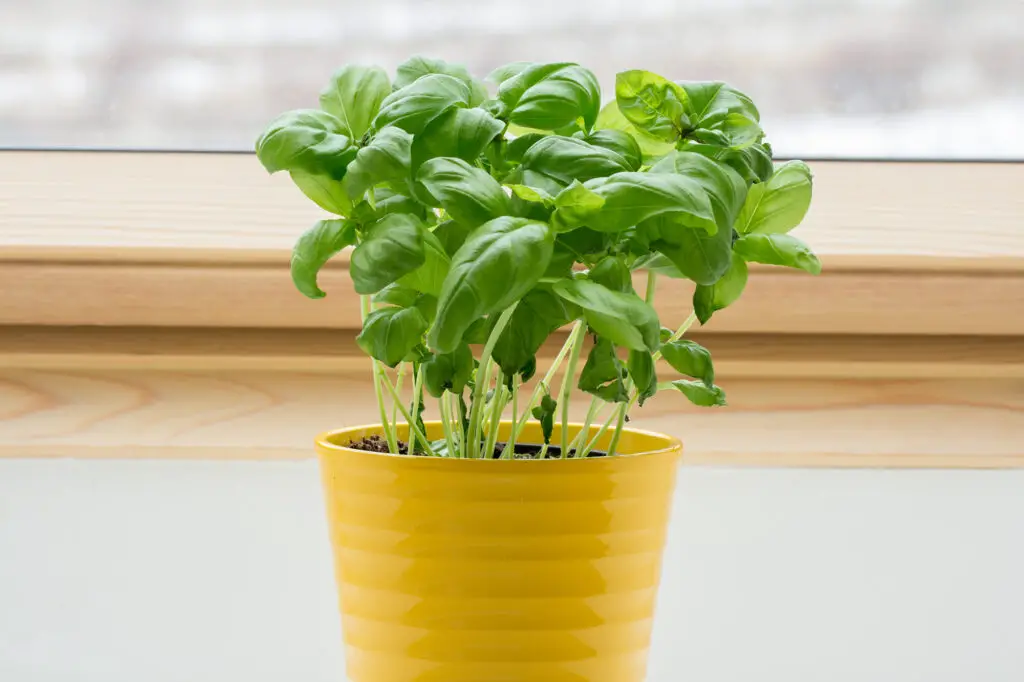
Beyond its culinary uses, basil is a natural mosquito repellent. Its strong, aromatic scent acts as a barrier to mosquitoes, making it an effective solution for keeping these pests away. Basil’s essential oils are particularly effective in deterring mosquitoes, and it works best when placed in pots on patios, near outdoor seating areas, or along windowsills to create a mosquito-free environment.
Basil is a sun-loving herb that thrives in well-drained soil and warm temperatures, so it’s perfect for growing outdoors during the warmer months. In addition to its mosquito-repelling qualities, basil’s fragrant leaves are a great addition to your kitchen for adding flavor to dishes.
Incorporating basil into 15 Mosquito Repellent Plants for Your Garden not only gives your garden a fresh, herbal touch but also provides a natural way to ward off mosquitoes while you enjoy outdoor activities. Simply crush or rub the leaves to release the oils and increase its mosquito-repelling power. Whether used in your garden or on your dining table, basil is a versatile plant that adds both beauty and protection to your space.
5. Peppermint
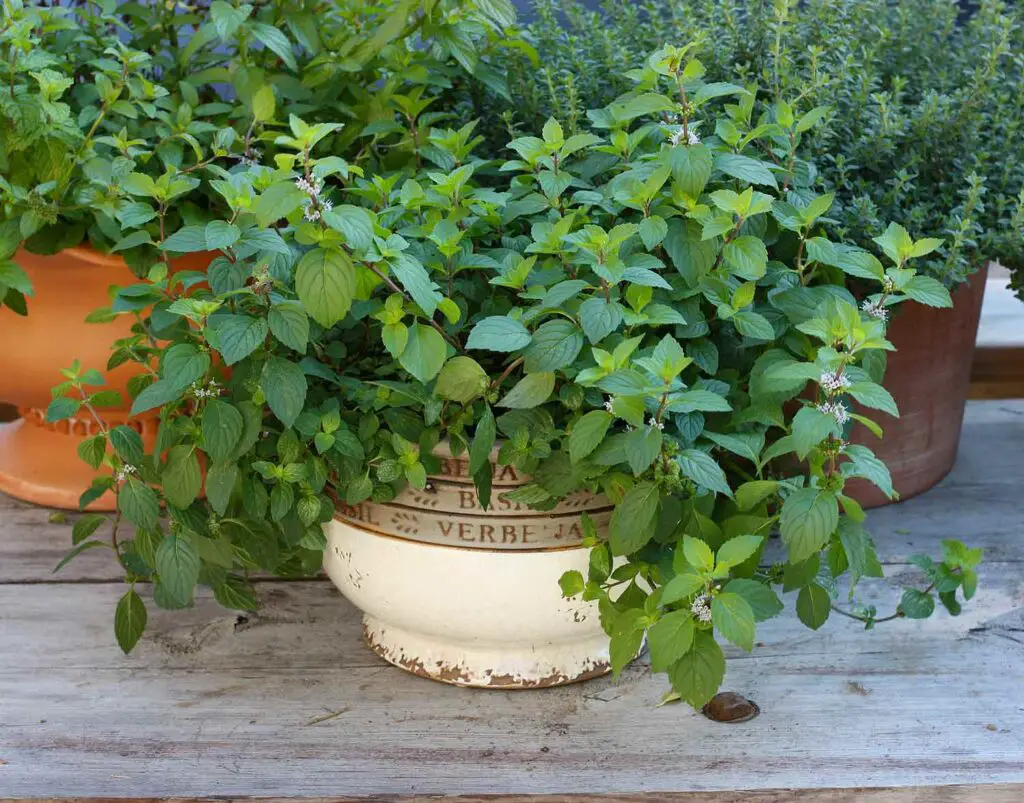
The refreshing scent of peppermint not only invigorates the senses but also doubles as a powerful mosquito deterrent. Peppermint contains menthol, which mosquitoes find unpleasant, making it an excellent natural repellent. To amplify the aroma, simply crush its leaves, releasing more of its oils and creating a stronger barrier against bugs.
Peppermint grows well in both containers and garden beds, thriving in partially shaded areas with moist, well-drained soil. In addition to its mosquito-repelling benefits, peppermint is also handy for soothing mosquito bites and other skin irritations, offering a natural remedy for itching and inflammation.
Adding peppermint to 15 Mosquito Repellent Plants for Your Garden will keep your outdoor spaces not only mosquito-free but also refreshingly aromatic. Whether you grow it around your garden, on the patio, or near doorways, peppermint will create an inviting, bug-free zone for you to enjoy. Plus, it’s a versatile herb that can be used in teas, culinary dishes, or homemade beauty products, making it a must-have for your garden.
Related Topics:
6. Catnip
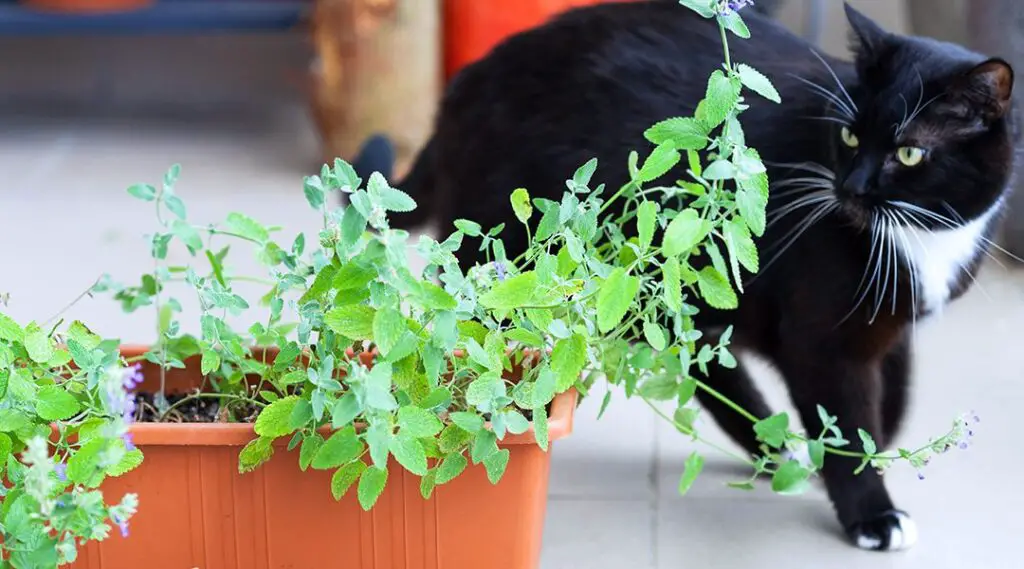
Cats love it, mosquitoes hate it. Catnip is one of the most effective natural mosquito repellents, thanks to a compound called nepetalactone. This powerful substance not only attracts felines but also drives away mosquitoes and other pests. Growing catnip in your garden is an easy and effective way to create a mosquito-free environment, especially around seating areas or doorways.
Although catnip is highly effective at repelling mosquitoes, it may attract some furry visitors to your garden, so keep this in mind when planting. It thrives in sunny spots with well-drained soil and is incredibly easy to grow, making it a great addition to your garden or even in pots.
Including catnip in 15 Mosquito Repellent Plants for Your Garden gives you a two-fold benefit: you get to enjoy a pest-free space while your feline friends indulge in a favorite treat. If you’re looking for a natural, low-maintenance way to keep mosquitoes at bay, catnip is a must-have plant for your garden!
7. Rosemary
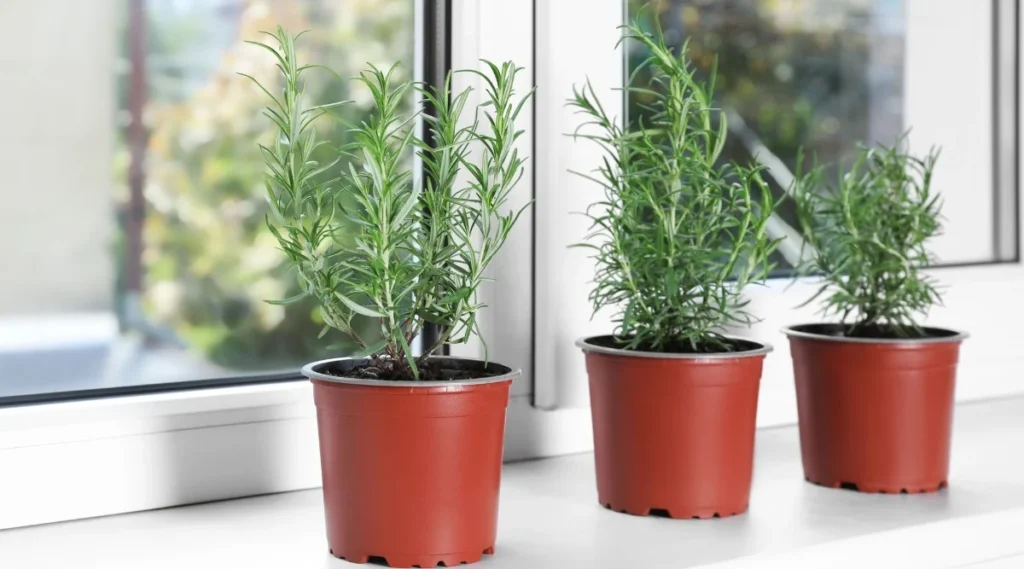
Rosemary is a multi-functional plant that not only adds a savory flavor to your cooking but also serves as a natural mosquito repellent. Its strong, aromatic scent, released from its woody stems and needle-like leaves, acts as a deterrent for mosquitoes. Rosemary thrives in sunny locations and well-drained soil, making it easy to grow in garden beds, pots, or even along walkways.
To amplify its mosquito-repelling effect during outdoor gatherings, try burning a few sprigs of rosemary in a fire pit or on a grill. The smoke helps release the plant’s essential oils, creating a natural barrier against mosquitoes and adding a delightful aroma to your outdoor space.
By adding rosemary to your 15 Mosquito Repellent Plants for Your Garden, you’ll not only keep pests away but also enjoy a fragrant, functional plant that can be used in a variety of ways, from cooking to DIY remedies. Whether planted in your garden or used as a natural incense, rosemary is a versatile addition to any mosquito-free garden.
8. Citronella Grass

Citronella is one of the most famous mosquito-repellent plants, known for its strong, citrusy scent. The oil extracted from citronella grass is the key ingredient in many mosquito-repelling candles and sprays, making it a must-have plant for any garden looking to stay pest-free. When grown in clumps around your patio or outdoor seating areas, citronella grass releases a scent that mosquitoes find unbearable, creating a natural barrier to keep them away.
This fast-growing, tall grass thrives in warm climates and needs plenty of sunlight to grow. Citronella grass is easy to care for and makes an excellent addition to garden beds or pots. You can also crush the leaves to release the oils and enhance its mosquito-repelling power.
Including citronella grass in 15 Mosquito Repellent Plants for Your Garden is a natural, eco-friendly way to enjoy your outdoor space without the need for harmful chemicals. Plant it around patios, decks, or near doorways to help keep mosquitoes at bay while adding a tropical, grassy vibe to your garden.
9. Mint
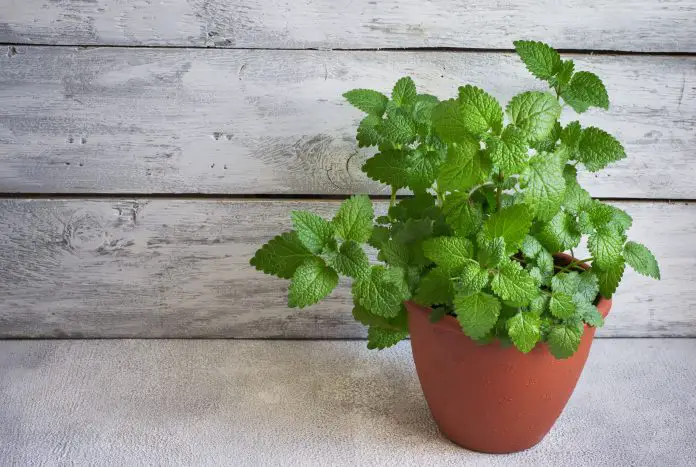
Like peppermint, mint’s strong aroma works as a natural mosquito repellent by masking the scent of humans that mosquitoes find attractive. Its refreshing, fragrant leaves are highly effective in keeping these pests away, making it an ideal plant for creating a mosquito-free environment. Mint is incredibly easy to grow and thrives in both garden beds and containers.
To create a natural mosquito barrier, plant mint along the edges of your garden or around your outdoor seating areas. Its rapid growth allows it to spread quickly, forming a fragrant boundary that keeps mosquitoes at bay. For best results, keep it in pots or raised beds, as mint can be invasive when planted directly in the ground.
Including mint in 15 Mosquito Repellent Plants for Your Garden not only helps protect you from pesky mosquitoes but also adds a fresh, aromatic element to your landscape. Whether used in teas, culinary dishes, or homemade remedies, mint is a versatile herb that provides both beauty and functionality in your garden.
10. Allium
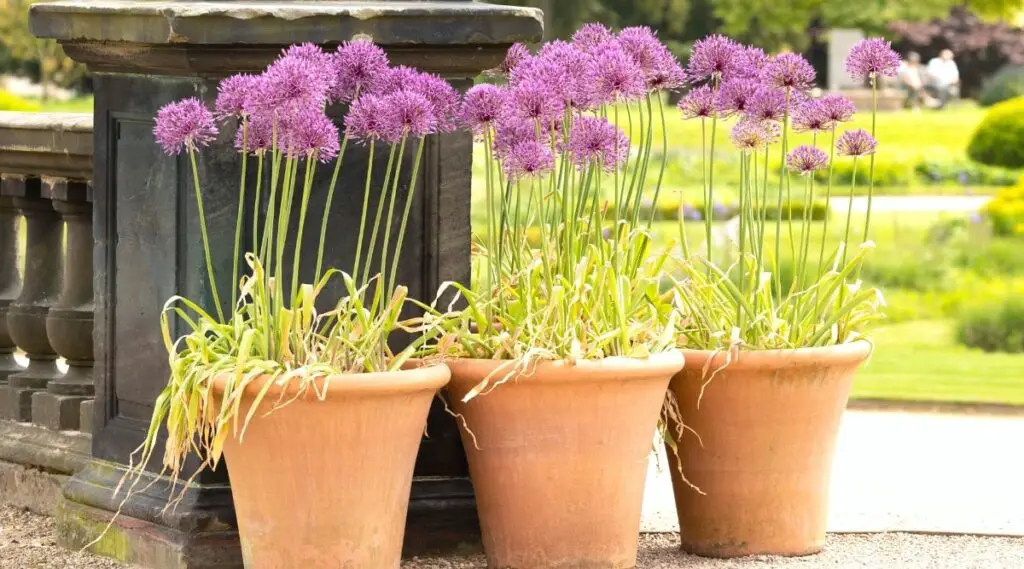
Alliums, which belong to the onion family, are not only striking in appearance but also effective in repelling mosquitoes, aphids, and other garden pests. Their pungent scent, similar to garlic and onions, naturally deters mosquitoes, making them an excellent addition to your garden for both beauty and pest control.
These plants produce large, spherical blossoms in shades of purple, white, and pink, adding a whimsical touch to your garden while working as a natural insect deterrent. Alliums thrive in well-drained soil and full sunlight, making them perfect for adding height and texture to garden beds or flower borders.
By adding alliums to your 15 Mosquito Repellent Plants for Your Garden, you’ll not only enjoy a beautiful, pest-free space but also benefit from their ability to repel various insects naturally. Whether planted alongside other flowers or as standalone features, alliums bring both charm and protection to your garden.
11. Bee Balm
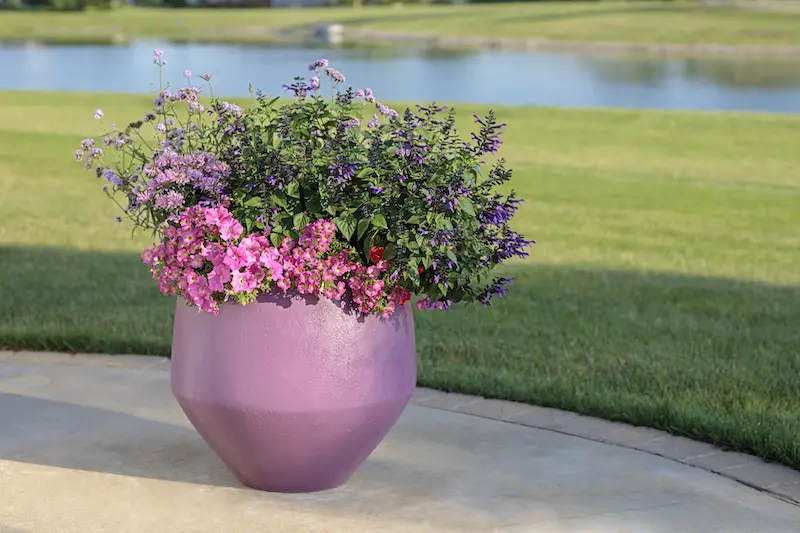
Bee Balm is a beautiful, vibrant plant that attracts pollinators like bees and butterflies, but it has the opposite effect on mosquitoes. The plant’s lemony fragrance, produced by its aromatic leaves and flowers, ensures mosquitoes steer clear of your garden. This makes Bee Balm an excellent choice for creating a mosquito-free outdoor space while also enhancing biodiversity by supporting local pollinators.
Bee Balm thrives in sunny to partially shaded areas and moist, well-drained soil, making it perfect for garden beds, flower borders, or containers. It produces colorful blooms in shades of red, pink, and purple, adding a pop of color while keeping mosquitoes at bay.
Including Bee Balm in 15 Mosquito Repellent Plants for Your Garden gives you a dual benefit: a stunning, wildlife-friendly garden and a natural mosquito repellent. Whether used in flower beds, along pathways, or near patios, Bee Balm is a lovely and effective way to keep mosquitoes away naturally.
12. Eucalyptus

Eucalyptus oil is a well-known mosquito repellent, and the plant itself does an equally good job of keeping bugs at bay. The crisp, clean scent of eucalyptus is highly effective at deterring mosquitoes, making it a great addition to any garden or outdoor space. Not only does it protect you from pests, but it also adds a refreshing, invigorating aroma to your environment.
Eucalyptus thrives in sunny locations with well-drained soil and is perfect for adding height and structure to your garden. Its silvery-green leaves and distinctive shape make it a beautiful and functional plant for your landscape. In addition to its mosquito-repelling properties, eucalyptus is also known for its antiseptic qualities and can be used in homemade remedies and essential oil blends.
By including eucalyptus in 15 Mosquito Repellent Plants for Your Garden, you can enjoy both the visual appeal and the natural protection it offers. Whether grown as a small shrub or a larger tree, eucalyptus will help keep your garden free of mosquitoes while enhancing your outdoor experience.
13. Lemon Balm
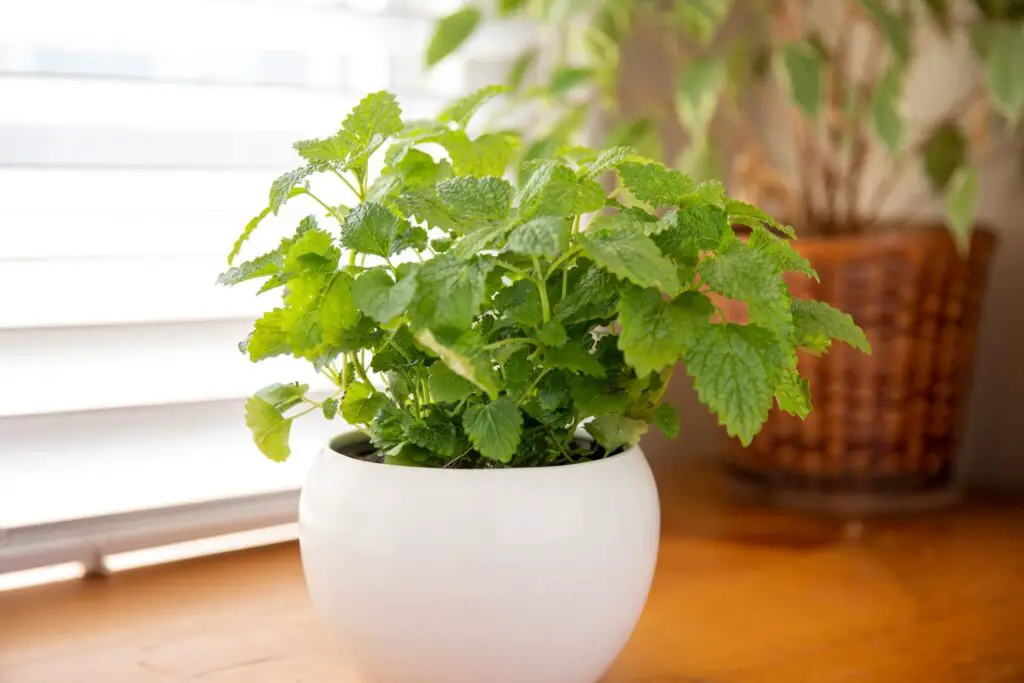
A member of the mint family, lemon balm boasts a refreshing citrusy aroma that effectively repels mosquitoes. The strong scent, similar to lemon, makes it an excellent natural barrier against these pesky insects, creating a more enjoyable and bug-free environment. Lemon balm is easy to grow and thrives in sunny or partially shaded spots with well-drained soil.
One of the best features of lemon balm is its versatility—plant it in pots, and you can easily move it around your outdoor spaces to maximize its mosquito-repelling effect. Whether placed near patios, decks, or doorways, lemon balm helps keep mosquitoes at a distance while adding a delightful fragrance to your garden.
Including lemon balm in 15 Mosquito Repellent Plants for Your Garden ensures you can enjoy your outdoor areas without worrying about unwanted bites. Its ability to thrive in containers also makes it perfect for small spaces or those looking to move the plants around as needed for maximum effectiveness.
14. Garlic
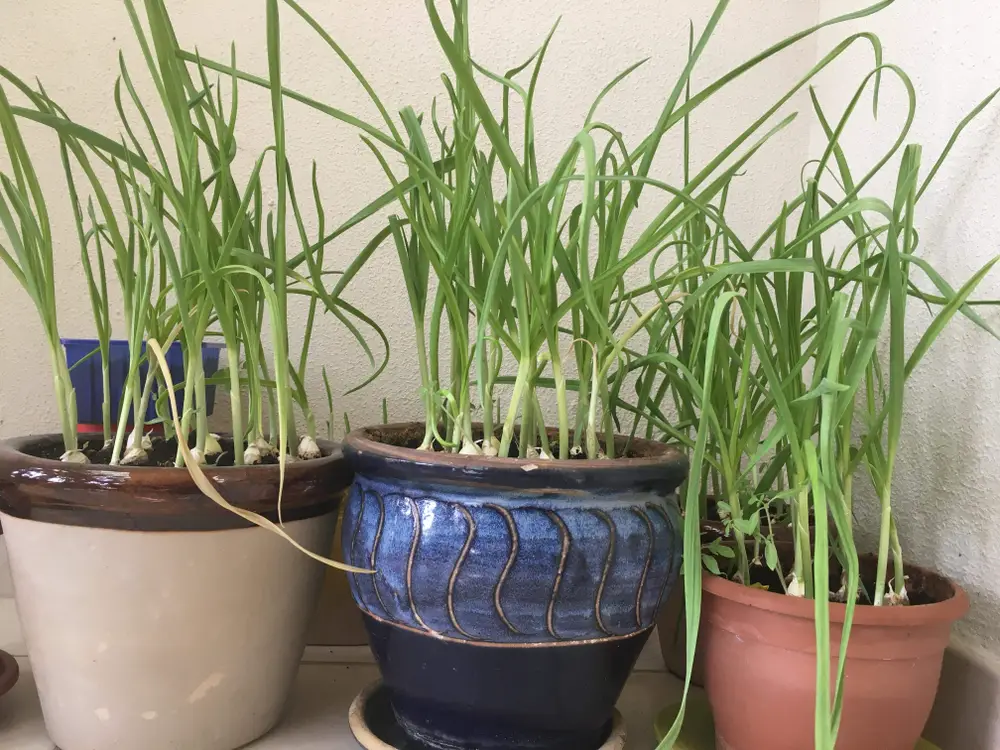
Growing garlic is a win-win. Its potent smell not only deters mosquitoes but also adds incredible flavor to your culinary creations. The strong aroma released by garlic’s bulbs and foliage is highly effective in repelling mosquitoes and other garden pests. Garlic is easy to grow and thrives in well-drained soil with plenty of sunlight, making it an excellent addition to your vegetable garden or flower beds.
Plant garlic in rows or around the edges of your garden to help create a natural mosquito-repelling barrier. When the garlic is harvested, you can use the fresh bulbs in cooking, adding flavor to a variety of dishes. In addition to its mosquito-repelling properties, garlic has other health benefits, including its ability to boost the immune system and improve heart health.
Including garlic in 15 Mosquito Repellent Plants for Your Garden is a simple and practical way to keep your space bug-free while also boosting your kitchen’s flavor profile. Whether used as a barrier or incorporated into your meals, garlic offers both functional and culinary benefits in your garden.
15. Chrysanthemums
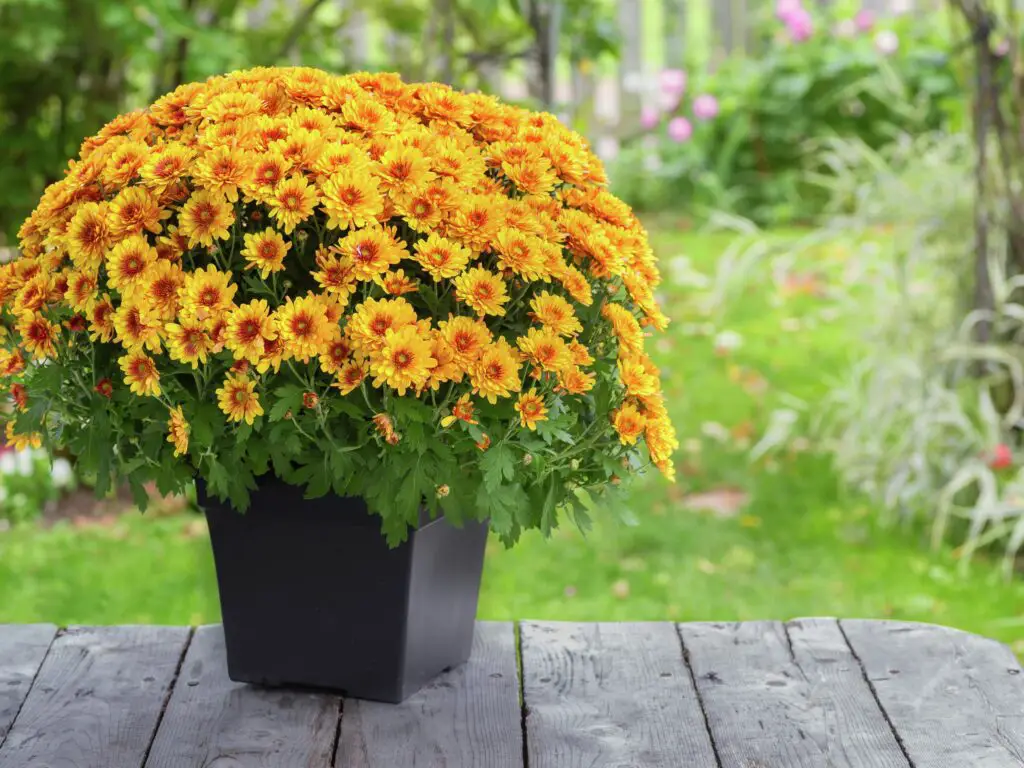
Chrysanthemums, commonly known as mums, are not only stunning with their vibrant blooms, but they also contain pyrethrum, a natural insecticide that effectively repels mosquitoes, roaches, ants, and other pests. The powerful compounds found in chrysanthemum petals make them a great addition to your garden for both aesthetic and functional purposes.
Plant chrysanthemums in sunny areas with well-drained soil to allow them to thrive. Their bright, colorful flowers are perfect for adding a cheerful touch to your garden while keeping unwanted insects at bay. Chrysanthemums are easy to care for and come in various colors, including red, yellow, white, and purple, providing plenty of options for enhancing your garden’s visual appeal.
By incorporating chrysanthemums into 15 Mosquito Repellent Plants for Your Garden, you’ll benefit from natural insect control while enjoying their beautiful, long-lasting blooms. These versatile plants are perfect for garden borders, flower beds, or container gardening, helping you maintain a pest-free outdoor space with ease.
How to Use Mosquito Repellent Plants?
Plant these 15 Mosquito Repellent Plants for Your Garden in strategic areas around your home to maximize their effectiveness in keeping mosquitoes at bay. Place them near patios, balconies, windows, or entryways to create natural barriers that will help protect your outdoor and indoor spaces. These plants release scents that mosquitoes find unpleasant, creating a protective shield around your home.
For the best results, consider planting them in clusters to enhance their mosquito-repelling power. Place them in pots so you can easily move them around your outdoor spaces based on where you need them most. You can also plant them in garden beds or along walkways to create a fragrant, bug-free pathway for guests and family members.
While these plants work wonders on their own, combining them with other mosquito control measures, such as screens on windows and doors or citronella candles during outdoor gatherings, will offer additional protection. Keep the plants healthy by ensuring they receive enough sunlight, water, and proper care. Regularly crush or rub the leaves to release their essential oils and amplify their mosquito-repelling effects.
By incorporating these 15 Mosquito Repellent Plants for Your Garden alongside other preventive strategies, you can enjoy a natural and chemical-free way to keep mosquitoes out of your home and garden.
Incorporating 15 Mosquito Repellent Plants for Your Garden is a natural and effective way to keep mosquitoes and other pests at bay while enhancing the beauty of your outdoor space. These plants not only offer a fragrant and colorful addition to your garden but also provide eco-friendly protection against mosquitoes without the need for harsh chemicals. By strategically planting them around your home, near patios, windows, and entryways, you can create a mosquito-free zone for you and your loved ones to enjoy.
Remember, combining these plants with other mosquito control measures like screens, citronella candles, and proper maintenance will provide maximum protection. Whether you’re looking to add charm to your garden or simply want to keep mosquitoes away, these plants offer the perfect blend of functionality and beauty. Grow them, enjoy their fragrance, and protect your home from those pesky, blood-sucking insects naturally!
FAQs:
1. Do mosquito repellent plants really work?
Yes! Mosquito repellent plants release natural scents that mosquitoes find unpleasant, helping to keep them at a distance. While the level of effectiveness can vary depending on the plant and environmental factors, combining these plants with other measures, like citronella candles or screens, can significantly reduce mosquito presence around your home and garden.
2. Can I grow mosquito repellent plants indoors?
Absolutely! Many mosquito repellent plants, such as basil, lavender, and lemon balm, can be grown indoors in pots or containers. Simply place them near windows, doors, or other entryways where mosquitoes might try to enter. Indoor plants will not only help keep mosquitoes away but also brighten up your living space with their lovely fragrance.
3. How do I care for mosquito repellent plants?
Caring for mosquito repellent plants generally involves providing them with proper sunlight, water, and well-drained soil. Some, like citronella and eucalyptus, need full sun, while others, such as mint and lemon balm, prefer partial shade. Regularly trim or crush the leaves to release the essential oils that maximize their mosquito-repelling power.

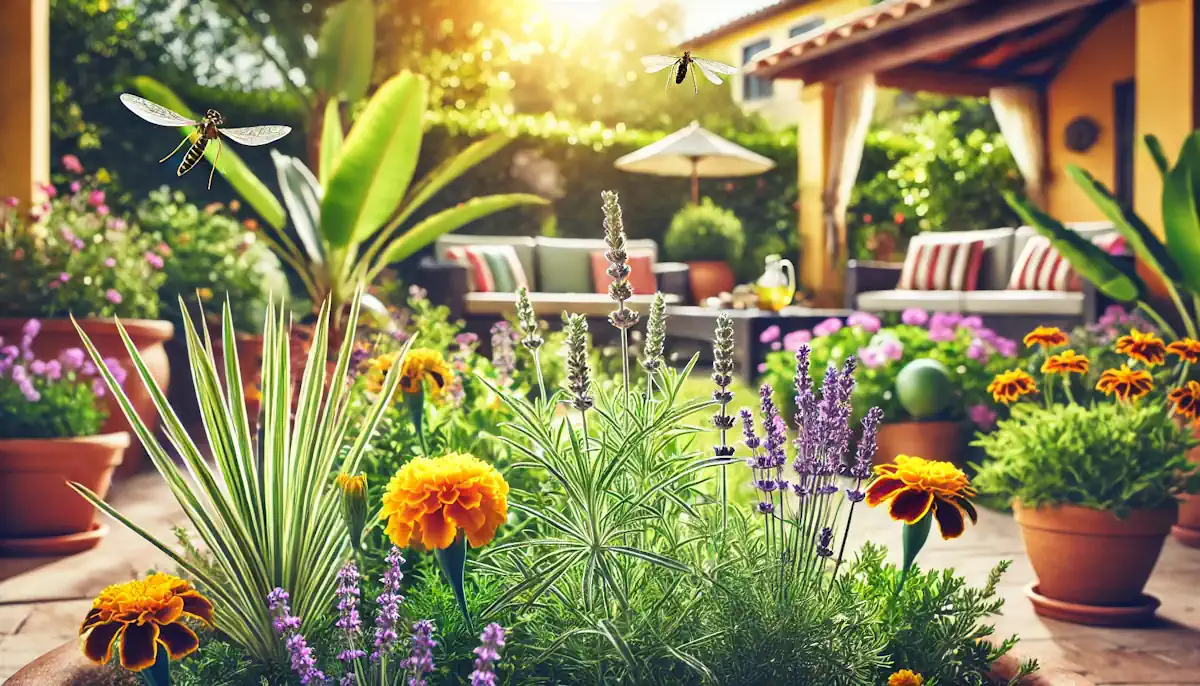
2 thoughts on “15 Mosquito Repellent Plants For Your Garden: Safe And Serene Yard!”